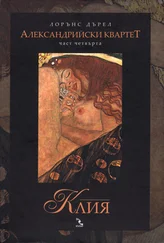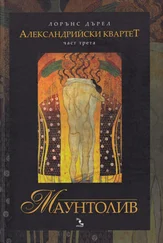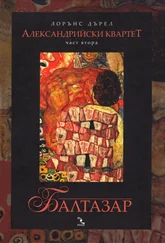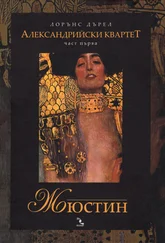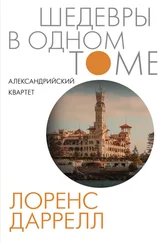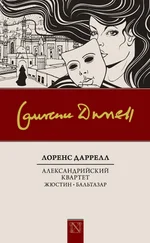Лоренс Даррелл - Prospero's Cell
Здесь есть возможность читать онлайн «Лоренс Даррелл - Prospero's Cell» весь текст электронной книги совершенно бесплатно (целиком полную версию без сокращений). В некоторых случаях можно слушать аудио, скачать через торрент в формате fb2 и присутствует краткое содержание. Жанр: Проза, на английском языке. Описание произведения, (предисловие) а так же отзывы посетителей доступны на портале библиотеки ЛибКат.
- Название:Prospero's Cell
- Автор:
- Жанр:
- Год:неизвестен
- ISBN:нет данных
- Рейтинг книги:4 / 5. Голосов: 2
-
Избранное:Добавить в избранное
- Отзывы:
-
Ваша оценка:
- 80
- 1
- 2
- 3
- 4
- 5
Prospero's Cell: краткое содержание, описание и аннотация
Предлагаем к чтению аннотацию, описание, краткое содержание или предисловие (зависит от того, что написал сам автор книги «Prospero's Cell»). Если вы не нашли необходимую информацию о книге — напишите в комментариях, мы постараемся отыскать её.
Prospero's Cell — читать онлайн бесплатно полную книгу (весь текст) целиком
Ниже представлен текст книги, разбитый по страницам. Система сохранения места последней прочитанной страницы, позволяет с удобством читать онлайн бесплатно книгу «Prospero's Cell», без необходимости каждый раз заново искать на чём Вы остановились. Поставьте закладку, и сможете в любой момент перейти на страницу, на которой закончили чтение.
Интервал:
Закладка:
Three hundred feet below, I cross the margin of scalding white sand, to the shadow of the great rock, and lie panting for a moment, too exhausted by running to move. Above me, leaking from the heart of the cliff, runs sweet water, down a shallow lip of maidenhair, into a sand-bowl; further to the left a mysterious spring rises in the very sand itself with little regular gushes, as if from some severed artery in the earth. At each soundless pulse a small cone of sand rises in the hollow and slowly spins back to the bottom. Clear and cold, the water plays with the regularity of a clock. It is the sweetest of the island waters, because it tastes of nothing but the warm afternoon, the breath of the cicadas, the idle winds crisping at little corners of the inert sea, which stretches away towards Africa, death-blue and timeless.
In this little bowl I wash the grapes I have brought with me. They are the little early grapes, delicately freckled green, and of a pouting teat-shape. The sun has penetrated their shallow skins and has confused the sweetness with its own warmth; it is like eating something alive.
Then after a rest another burst of running across the sand to where the cliff-path winds upwards, vertiginous and rocky, among the myrtle-groves. At the top of the cliffs, if you look back, you see the sea has become a deep throbbing emerald; the sand is freckled by long roaming silver lines across which an occasional lazy fish will move, indulgent of still water. In the shadows under the cliff a piercing nitric green. Far out across the water a brig moves southward into the sun; the noise of its engine is carried in the empty spaces of the air — a sound rubbed out as soon as registered, though nothing has breathed or stirred around one. A white butterfly wavers in across the blue spaces.
The mare snorts in the shadow of the peasant's house, glad to return. Half an hour later I am under the terrace upon which Zarian and Theodore sit, drinking tea from heavy Venetian-looking crockery, while the Count, an unfamiliar pipe alight in his mouth, sits and methodically cleans the coat of his favourite gun dog. It is inevitable that the discussion of this morning should be continuing. 'But, my dear Doctor,' the Count is saying placidly, 'I do not know how you can reconcile current religious beliefs without dragging in the ancient Pantheon. Our saints are not canonized and forgotten. They walk. The hagiography of St. Spiridion is still being written in those little two drachma books you buy outside the church. And then, the confusions. You have made a study of the folk-songs; have you found a very clear distinction made between the just and the unjust, or the idea of reward and punishment? No. The dead simply drink the waters of Lethe ([Greek]) and enter into a sort of mirage life, troubled by vague longings for fleshly joys — everything which we sum up in that most beautiful of Greek words [Greek]. And then, of course, you have the Underworld, the Abode of the Dead. It is also known as Hades and as Tartarus, just to complete our confusion. And Charon, as you know, still exists, though he has altered his habits. Sometimes black snake, sometimes black swallow or eagle, he is also the Black Cavalier of our modern imaginations, dragging the souls of the dead behind him into the netherworld. And even he is credited in modern mythology with a wife. No. The only return for the dead seems to be for the unlucky or the evil; they become vampires and roam for a short while, until the Church catches up with them.'
Zarian is wearing his spectacles which means that he is paying extra close attention. Meanwhile Theodore nods his golden beard and, pouring out his tea into a saucer, blows upon it to cool it. The methodical fingers of the Count move through the shaggy coat of the animal, pulling off the fat white ticks, pursed with blood, one by one. 'And then the naiads', says the Count again, with his peculiar sweetness of voice, 'and the nereids that haunt our fountains and wells — what would we do without them? The shadow of the cypress which at noonday can drive a sleeper mad? The sea-maiden that winds her arms about those poor fishermen whom the full moon has overtaken on the strands?' Theodore is giving his famous grunt of disapproval which we have all learned to imtate. It is a kind of humming behind closed lips. 'You cannot, my dear Doctor,' continues the Count ruthlessly, 'make them compare with your scientific findings, yet we are glad to own them, even if they are lapses from the material attitude. They are part of the fantasy of this remarkable country and island, are they not?'
The dog whimpers softly as the strong antiseptic is applied to the little raw wounds left by the ticks; the Count's shapely hands cherish and soothe it. He looks up smiling, and watches Zarian disposing of a cake in short order. 'And think of the piercing lamentations of the professional mourners. I have made a collection of them — all spontaneous poetry, and some of the best known to the language. But there is no trace of the good-and-evil preoccupation. No, we Greeks are not religious, we are superstitious and anarchic. Even death is less important than politics. There is a kind of old Mother Hubbard who lives on the hill there; she is much in demand at funerals because of her poetic gift. Last year when Taki the fisherman died you should have heard her singing. It would have moved a stone.
“My silver boy,
My golden one,
Softer the down on his face
Than breast of the woodcock;
Keener his mind than a snake striking.
The silver person has left us.
The golden man has gone.”
'We carried him in his open box to the cemetery on the hill, and all the time this poetry was flowing out of Mother Hubbard in a continuous stream, keeping pace with her tears, for she really loved Taki.'
'Was the coffin open?' says Zarian.
'Yes. There again a point is proved.'
'Is that a religious custom of the island?'
'No. But under the Turks it was a law to prevent the smuggling of arms in coffins under the pretence of carrying corpses to the grave. In some places it has lingered on among the superstitious. So Taki's pale aquiline features were visible all the way as the ragged little procession wound up the hill. He looked as if he were about to smile. Of course no sooner was he dead and buried than Mother Hubbard, who was some vague relation, took out an injunction against his mother, to prevent her disposing of Taki's twenty olive-trees, which, she said, had been given to her as a gift. You see, there seemed to her no incongruity in making poetry for a dead man whom you love, and whose heirs you are trying to swindle. The case dragged on for months and I believe she lost it.'
As we talk we are watching out of the corner of our eyes the little party of sprayers which moves slowly down the rows of olivetrees. The foremost man holds the long canister with the tapering spout, through which he sprays a jet of arsenic and molasses, in a light cloud over each tree, to preserve the bloom against the ravages of its special pest. .
'It is fortunate', says the Count, 'to have a rich language. Look at my olive trees. How immeasurably they are enriched by the poetic symbolism which surrounds them — the platonic idea of the olives. The symbol for everything enriched by the domestic earth and private virtue. Then again, we use the word for those small dark moles which our women sometimes have on their faces or throats. And of course, being Greek, I find myself thinking at one and the same moment of all these facts, as well as the fact that the olive brings me in some eight hundred pounds a year on which to philosophize. Poetry and profit are not separated at all. For the Greek there is only the faintest dividing line.'
The evening light mellows very softly into its range of warm lemon tones, pressing among the close bunches of ripening grapes, and washing the tiles of the peasant houses in the valley. The turtle-doves croon softly in the arbours behind the orchard. The cicadas are dying out — station after station closing down. The two great plane-trees are already silent, and only in the meadow where the sun still plays do they keep up their singing. In the altering values of sound one becomes aware of the chink of teacups as the servant-girl clears away.
Читать дальшеИнтервал:
Закладка:
Похожие книги на «Prospero's Cell»
Представляем Вашему вниманию похожие книги на «Prospero's Cell» списком для выбора. Мы отобрали схожую по названию и смыслу литературу в надежде предоставить читателям больше вариантов отыскать новые, интересные, ещё непрочитанные произведения.
Обсуждение, отзывы о книге «Prospero's Cell» и просто собственные мнения читателей. Оставьте ваши комментарии, напишите, что Вы думаете о произведении, его смысле или главных героях. Укажите что конкретно понравилось, а что нет, и почему Вы так считаете.


